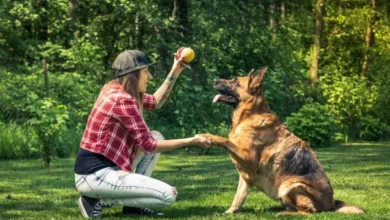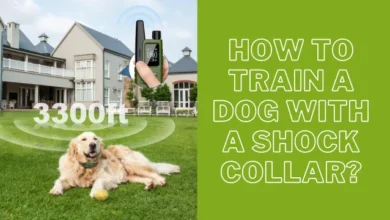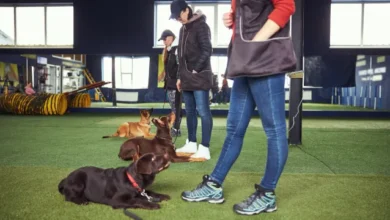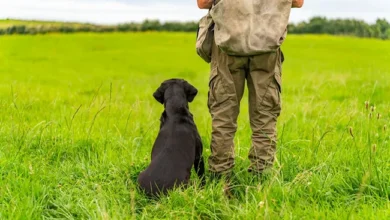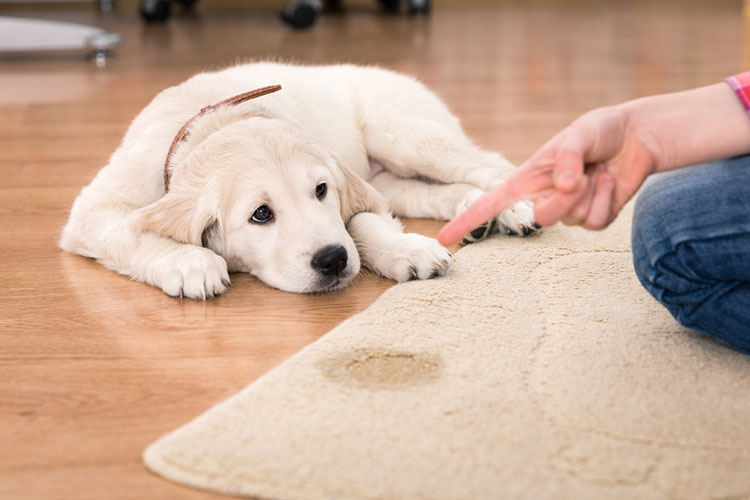
It can be quite stressful to see your dog’s poo in your house especially when you got company. It also is an issue with the cleanliness at home much more when you have kids and old people around. A puppy who is not potty trained can be a source of parasites, bacterial disease, and even stress. Owning a puppy is fun but it also includes a lot of responsibilities, not just providing food and shelter but also the responsibility of housebreaking.
Naturally, dogs in the wild do their business everywhere except their dens. Newborn puppies eat and poo on their dens because it is expected that their mothers will clean up after them. When a pup reaches the age of seven weeks, he starts to avoid pooing in his den or the place where he feels safe. This is a natural dog’s instinct, so Everything For Our Pets has little reminders for you.
Please keep on reading below for the dos’ and doesn’ts of house-training your puppy.
The Dos of House- Training your Puppy
- Do choose the method that you are going to use in house-training your puppy. There are actually three methods:
Crate training –basing on the principle that dogs do not relieve themselves on their den, first make a fenced den for them. This den should feel comfortable, safe and secure for the pup. It should include a crate which is of the right size for them to lie down and rest. If they feel safe and secure, they will naturally hold their urine and feces until they are allowed to go out of their crate. Consistency is key here as they will need to be out of the crate every after eating and every morning after waking up.
Texture Discrimination – based on the principle, the puppy is taught that some surfaces are okay got toileting and some aren’t. To do this, fence your puppy’s den and the floor should be covered with used newspaper. In two weeks, gradually decrease the size of the newspaper until on the third week, the newspaper should only cover a corner of the den. By then, the puppy should already know that this is the only area where he is allowed to relieve himself. In the fourth week, gradually reduce the size of the paper until there is no paper at all. Ideally, the den should be located near the dog flap for the puppy to go outside whenever he wants to poo.
Pick and Drop –This is the most simple method in-house- training your puppy but it would also require a lot of time since you will need to be around him more than the previous methods. The principle behind this is to take the puppy outside after every feeding and after waking up in the morning.
- You could also opt to combine all three for the most effective means of house- training.
- Do train your pup at seven- weeks old, this is the right age for the pup to recognize that pooing in its own den is no longer acceptable.
- Do be informed regarding the principle of texture discrimination. This is training the puppy that some surfaces are alright to defecate on and some aren’t. Combine this with conditioning which is based on the principle of reward and punishment.
- Do be aware that the pup’s time between eating then defecating is short and it takes around 5-30 minutes so it is best to establish and housebreaking schedule that is consistent.
- Do be patient with your puppy. In times of accidents, take a deep breath and calm down. Getting impatient or angry will only stress you and him out.
- At the beginning of potty training, do remember to keep the pup in its pen with the floor easy to clean such as linoleum or tile. Some also opt to put used newspapers.
- Do be consistent. Take the puppy outside to relieve itself first thing in the morning and 5-30 minutes after eating. Being consistent also holds true with providing positive reinforcement. Do not forget to give the pup a reward after successfully relieving itself at the proper place or even attempting to do it.
- Do remember that your puppy is still a baby and would need a lot of understanding and training in order to get it right.
- Do teach your puppy of the proper etiquette in housebreaking by setting an example yourself. If the pup has defecated inside the house, keep calm and bring your puppy to the scene and allow her to smell it then firmly say “no.” After which, put a paper towel over the poo and scoop it up then place it outside where you want the pup to defecate. Let her smell the poo again and if he does, give your pup a treat and some praise as a reward.
- Do calmly take the puppy outside and allow them to continue doing their business when you’ve caught them halfway through defecation.
- Do use an enzyme-based cleaner to clean the place where your pup has made an accident. Enzymatic cleansers will rid of the smell 100% compared to other cleansers. This will also prevent your pup from defecating on the same spot since the smell is no longer there.
The Don’ts of House-Training your Puppy
- Don’t blame the puppy for the accidents, this will only lengthen the process and make it harder for you and the pup. Rubbing their face in their faces, shouting at them, hitting them and even growling at them will only stress them out and disrupt the training.
- When choosing texture discrimination as a method for housebreaking your puppy, do not choose an area in the house too far from the door flap. This will only make it harder for the pup to hold it in and will only lead to accidents which are definitely frustrating for your and the puppy.
- Don’t hold off potty training your pup for long because this will only make the process harder. We know the saying “you can’t teach a dog new tricks” apply to housebreak too.
- Don’t start the potty training too early. As mentioned before, puppies start to avoid defecating on their dens at 7 weeks old, so it is much easier for you and your pet to start at that age. There are even those who learn faster at the age of four months so it is better to be more patient with your pup and accept his pace.
- Don’t ignore your puppy’s signals that it needs to go. Every time your pup wants to go outside, lead him immediately outside even if he is just being playful because being consistent is more important to impose the proper etiquette in the dos and don’ts of house-training your puppy.
- Don’t forget to establish a consistent schedule for potty training your puppy. Otherwise, your pup will get confused.
- Don’t assume that your pup will be like the other puppies that have learned to potty train faster or slower. In reality, puppies have different timelines; it doesn’t help to pressure yourself or the puppy to do something difficult or unattainable at the moment.
- Don’t think that whenever your pup makes an accident especially on your precious rug, he is doing it out of spite; it is never that. It is called an “accident” because it is not intended by the puppy. He doesn’t know that what he is doing is wrong.
- Do not ever put puppy pads on the crate or on the places where it is not allowed. This will only teach the pup that these places are his toilet areas.
- Don’t leave a smell on the area where the pup has made an accident. We all know how dogs tend to go back and relieve themselves on the place they have defecated on before. This is because when the smell is still there, they have the strong tendency to relieve themselves on the same spot.
- Don’t stop immediately after seeing that your pup has taken the hang of things. Stopping the schedule right away will only confuse the dog and might make him forget about the routine. Continue the consistency for a few weeks until you are 100% sure that your pup is totally potty trained.
- Don’t think housebreaking your puppy is impossible. Remember that it is in their inherent nature to avoid defecating on their den at a certain age.
- Don’t leave the puppy in their urine and feces for long periods of time. Immediately clean up the mess or if you do not home have a puppy- sitter do it for you.
Final Thought
Give your pup lots of love. You would want your puppy to be happy in the end and you should be happy too. A successful potty- training result means paying attention to the dos and don’ts of house-training your puppy, reinforcement, consistency and lots of patience. All these are needed to have a well-trained and happy puppy.
Do you have anything to add about puppy training? Share some below and don’t forget to share this article!
